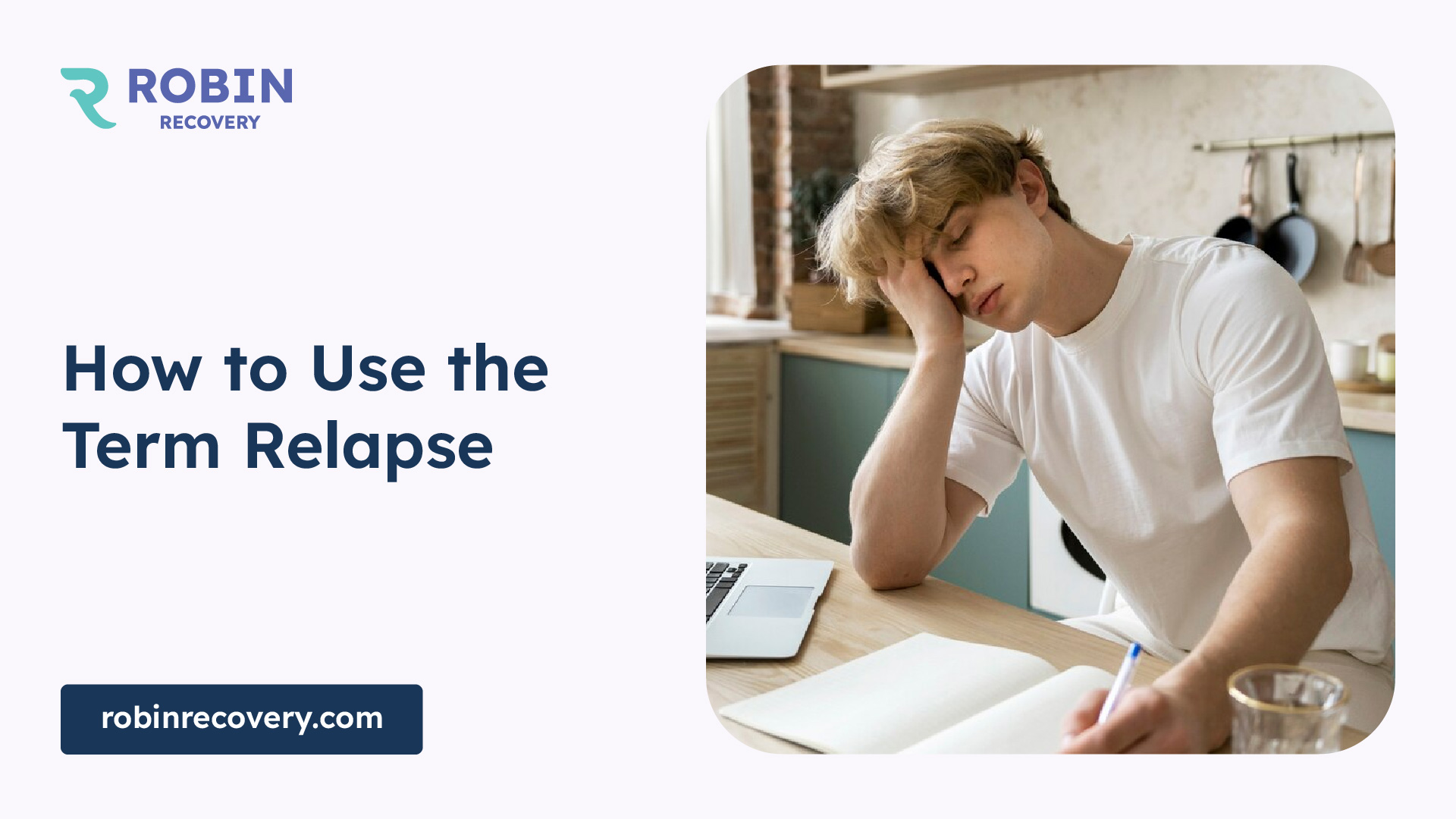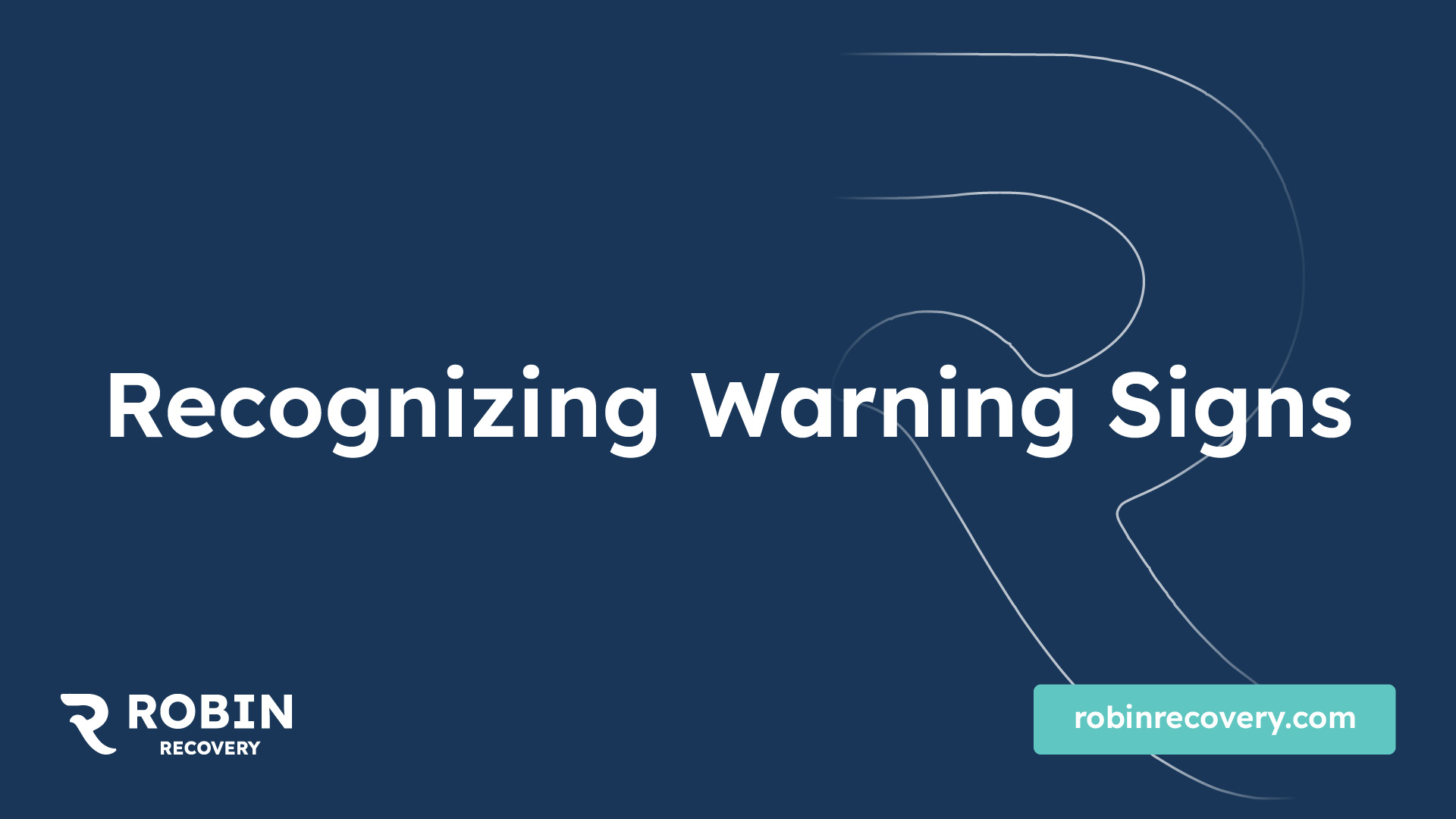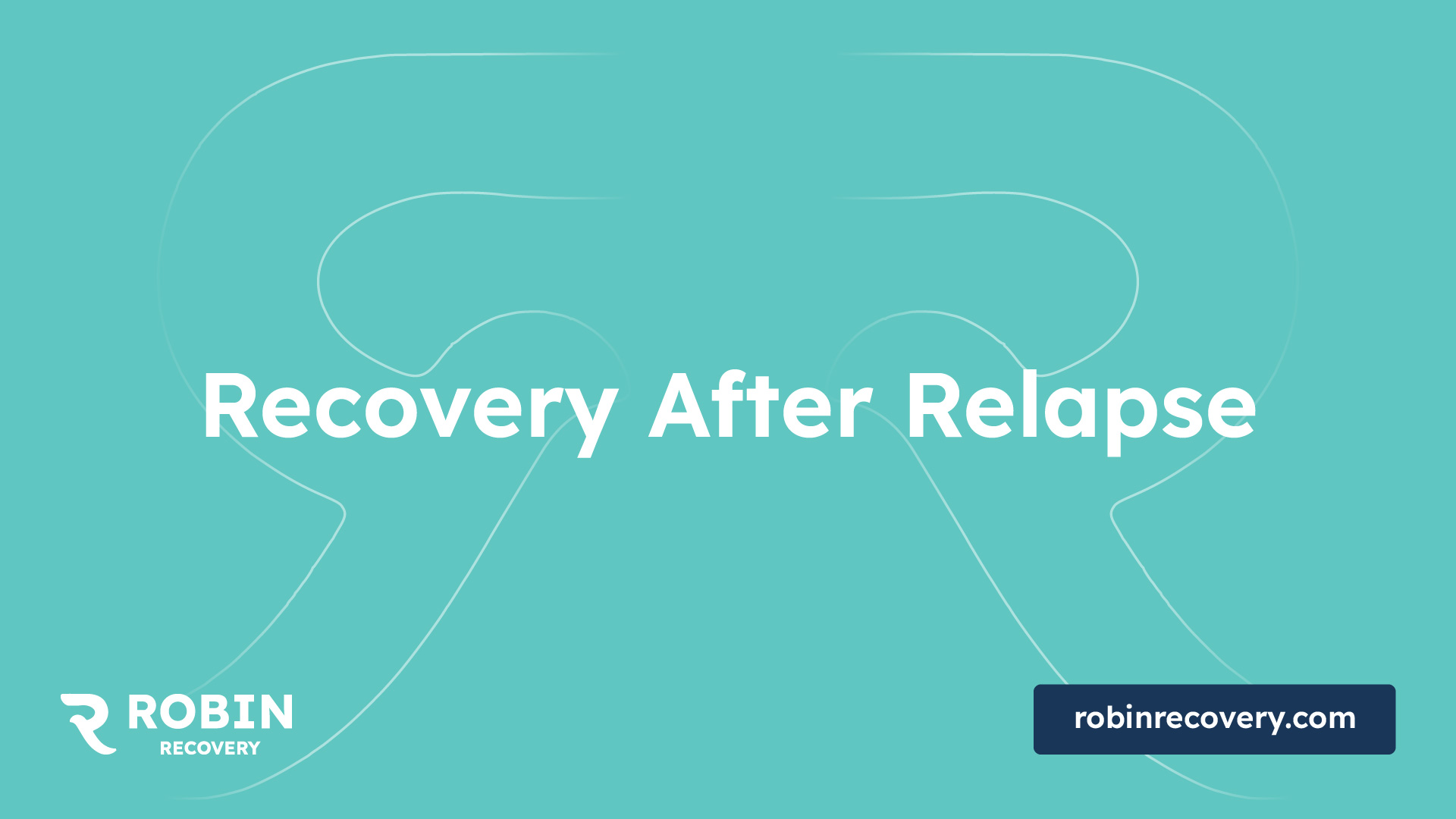How to Use the Term Relapse


Understanding Relapse
In the context of addiction, understanding the concept of relapse is essential for individuals in recovery and their loved ones. This section will provide a clear definition of relapse and present statistics that shed light on its prevalence.
Definition of Relapse
Relapse, in the context of addiction recovery, refers to the resumption of drug or alcohol abuse after a period of abstinence. It is when a person who has been working towards recovery falls back into their old patterns of substance use. It is important to note that relapse is not limited to addiction alone. In medical terms, relapse refers to the return of a disease or its symptoms after a period of improvement. This applies to various health conditions, including cancer, diabetes, and allergies.
Statistics on Relapse
Relapse is a common occurrence in addiction recovery, similar to how individuals with other chronic medical conditions may experience setbacks. Here are some statistics that provide insights into the prevalence of relapse:
- The relapse rate for substance abuse is estimated to be between 40% and 60%, which is comparable to the rate of relapse for other chronic medical illnesses like asthma, hypertension, and diabetes [2].
- A review of over 500 alcoholism outcome studies by Miller and Hester found that more than 75% of individuals with alcoholism experienced relapse within one year of treatment.
These statistics highlight the challenges that individuals face in maintaining long-term recovery. It is crucial to recognize that relapse is not a sign of failure but rather an opportunity to reassess and strengthen one's commitment to recovery. By understanding the triggers and implementing relapse prevention techniques, individuals can enhance their chances of sustained sobriety. For more information on ways to prevent relapse, refer to our article on ways to prevent relapse.
Identifying Relapse Triggers
To effectively prevent addiction relapse, it is crucial to identify the triggers that may lead to a recurrence of substance use. By recognizing these triggers, individuals can develop strategies to manage and avoid situations that may increase the risk of relapse.
Personal Relapse Triggers
One of the most valuable techniques for relapse prevention is the ability to identify personal relapse triggers. These triggers can vary from person to person and may include specific situations, emotions, or thoughts that increase the likelihood of substance use.
By understanding personal relapse triggers, individuals can create a detailed plan to effectively manage them. This may involve developing coping mechanisms, seeking support from loved ones or support groups, and implementing healthy strategies to address the underlying issues that contribute to relapse.
Common Relapse Triggers
While personal relapse triggers are unique to each individual, there are several common triggers that individuals in recovery may encounter. Awareness of these triggers can help individuals prepare and develop strategies to navigate through challenging situations.
Some common relapse triggers include:
- Social situations where drugs and alcohol are readily available: Being in environments where substances are present can be a significant trigger for relapse. It can be difficult to resist urges to use again in these situations, making it important to have a plan in place to cope with such triggers.
- Physical and emotional states: Insomnia, fatigue, hunger, anger, loneliness, and feeling tired are examples of physical and emotional states that can increase the risk of relapse. Implementing relapse prevention skills into daily routines, such as practicing self-care, managing stress, and seeking support, can help reduce the likelihood of cravings [5].
- Environmental cues: Certain people, places, or objects associated with past substance use can act as triggers for relapse. It's important to be aware of these cues and develop strategies to avoid or cope with them.
- Negative thoughts and emotions: Negative thoughts and emotions, such as stress, anxiety, depression, or feelings of low self-esteem, can contribute to the risk of relapse. Engaging in healthy coping mechanisms, such as therapy, support groups, and practicing mindfulness, can help individuals manage these triggers effectively [2].
It's important to remember that relapse triggers can vary from person to person, and each individual's recovery journey is unique. By identifying and understanding personal and common relapse triggers, individuals can take proactive steps to maintain their recovery and reduce the risk of relapse.
Preventing Relapse
To maintain long-term recovery, it is crucial to focus on preventing relapse. By implementing relapse prevention techniques and seeking support, individuals can reduce the risk of returning to substance use. Let's explore some effective strategies for preventing relapse and the role of support groups in this process.
Relapse Prevention Techniques
One of the most valuable techniques for relapse prevention is identifying personal relapse triggers. By recognizing the situations, emotions, or thoughts that may lead to a relapse, individuals can create a detailed plan to effectively manage them [4]. Some common triggers include stress, social situations where drugs or alcohol are available, and internal factors like anxiety, anger, or loneliness.
To effectively prevent relapse, individuals can develop coping strategies tailored to their specific triggers. These may include practicing mindfulness meditation, engaging in regular exercise, seeking therapy or counseling, and developing healthy stress management techniques. Additionally, implementing grounding techniques, like the 5-4-3-2-1 coping technique, can help individuals focus on the present moment and avoid unhealthy thoughts or feelings that may lead to relapse [5].
Role of Support Groups
Support groups play a vital role in relapse prevention by providing individuals in recovery with essential support, accountability, education, and the opportunity to connect with peers who understand the challenges of the recovery journey. Joining a support group, such as Alcoholics Anonymous (AA) or Narcotics Anonymous (NA), can significantly enhance the recovery process. These groups offer a safe and non-judgmental environment where individuals can share their experiences, gain valuable insights, and learn from others who have successfully maintained sobriety.
By participating in support group meetings, individuals can reduce feelings of loneliness and isolation, which are common triggers for relapse. Support group members provide encouragement, guidance, and empathy, fostering a sense of belonging and understanding.
In addition to traditional support groups, online communities and forums can also provide valuable support and connection for individuals in recovery. These platforms offer a space to share experiences, seek advice, and receive support from others who are facing similar challenges.
By utilizing relapse prevention techniques and engaging in support groups, individuals can strengthen their recovery journey and reduce the risk of relapse. It is important to remember that preventing relapse is an ongoing process, and seeking professional help when needed is crucial for sustained recovery.

Recognizing Warning Signs
To effectively address and respond to addiction relapse, it is crucial to be able to recognize the warning signs. Warning signs of relapse can vary from person to person, but there are common behavioral and emotional indicators to be aware of.
Behavioral Changes
Recognizing changes in behavior is key to identifying a potential relapse. These changes may include:
- Changes in routine: A person who is at risk of relapse may start deviating from their usual daily routine or engaging in activities that were associated with their previous substance use.
- Isolation: Increased social isolation or withdrawal from friends and family may indicate that someone is struggling with their recovery.
- Secrecy: Engaging in secretive behaviors, such as hiding substances or being evasive about their activities, can be a red flag for relapse.
- Return to addictive behaviors: Reverting to old patterns of behavior associated with the addiction, such as lying, manipulating, or engaging in risky activities, may indicate a potential relapse.
It is important to remember that warning signs of relapse can be unique to each individual. If you notice any significant changes in behavior in yourself or someone you care about, it is important to address the situation and offer support.
Emotional Indicators
Emotional changes can also serve as warning signs of relapse. These indicators may include:
- Mood swings: Rapid and extreme shifts in mood, such as going from euphoria to depression or irritability, can be a sign that someone is struggling with their recovery.
- Increased anxiety or irritability: Heightened levels of anxiety, irritability, or restlessness may indicate emotional distress and the potential for relapse.
- Neglecting self-care: A person who is neglecting their physical appearance, hygiene, or overall well-being may be experiencing emotional turmoil that puts them at risk for relapse.
Recognizing emotional indicators requires attentiveness and open communication. It is important to create a safe space where individuals feel comfortable expressing their emotions and seeking support.
If you suspect that you or someone you know is exhibiting warning signs of relapse, it is crucial to take action. Encourage open communication, remind them of their reasons for recovery, and offer support without judgment. Discuss the possibility of returning to treatment programs and consider seeking help from trained clinicians who can provide guidance and assistance throughout the recovery journey.
By being proactive in recognizing warning signs, you can help prevent relapse and support individuals in their journey towards lasting recovery. Remember, ignoring warning signs can make the recovery process more challenging in the long run.
Supporting a Loved One Through Relapse
Discovering that a loved one has experienced a relapse can be challenging, but providing support and encouragement can make a significant difference in their recovery journey. It is essential to approach the situation with kindness, empathy, and understanding. Here are some ways you can support a loved one through relapse.
Providing Support and Encouragement
When a loved one experiences a relapse, it is crucial to offer peer support in addiction recovery and use resources efficiently to create desired outcomes. Here are some strategies you can employ:
- Non-judgmental approach: It is important to choose language that does not create shame or guilt. Use supportive statements and questions to encourage open communication and limit feelings of negativity.
- Active listening: Provide a safe space for your loved one to express their feelings and concerns. Be present, attentive, and non-dismissive, allowing them to share their experiences without judgment.
- Empathy: Understand that addiction is a complex disease, and relapse is often part of the recovery process. Show empathy and let your loved one know that you recognize the challenges they are facing.
- Encouragement: Offer words of encouragement and remind your loved one that setbacks are common but not indicative of failure. Help them focus on the progress they have made and the strength they possess to overcome challenges.
- Assist in seeking professional help: A relapse is a sign that the person may need to renew their focus and dedication to drug addiction treatment. Encourage them to consider seeking professional addiction treatment, attending in-person support groups, or exploring online support options. Let them know that it is beneficial to consider organized treatments alongside the support of loved ones to reduce the risk of future problems.
Seeking Professional Help
If your loved one has relapsed, it may be necessary to seek professional help to guide them through their recovery journey. Professional addiction treatment centers and therapists can offer specialized care and support. Encourage your loved one to consider accessing these resources, such as The Recovery Village, as they can provide valuable tools and strategies for long-term recovery.
Remember, while supporting a loved one through relapse, it is essential to take care of yourself as well. Reach out to support networks, educate yourself about addiction, and consider seeking guidance from professionals who specialize in addiction recovery. By being a source of support, understanding, and encouragement, you can play a vital role in helping your loved one navigate their recovery journey and find the strength to rebound from relapse [7].

Recovery After Relapse
Experiencing a relapse in addiction can be disheartening, but it's important to remember that recovery is an ongoing process. In this section, we will explore two key aspects of recovery after a relapse: returning to treatment and the importance of continued support.
Returning to Treatment
Depending on the severity of the relapse and the individual's specific circumstances, returning to treatment may be necessary. Factors such as the length and degree of substance misuse play a role in determining whether a person needs to go back to rehab. Seeking professional guidance is crucial in evaluating the need for further treatment and determining the most appropriate course of action.
Returning to treatment programs can provide individuals with the necessary tools and support to address the underlying issues that led to the relapse. The structure and therapeutic environment of rehab centers can assist in rebuilding coping mechanisms, developing healthier habits, and reinforcing recovery strategies. If you or a loved one are considering returning to treatment, it's important to reach out to trained clinicians who can provide guidance and create a customized plan for recovery.
Importance of Continued Support
Continued support is instrumental in the recovery journey after a relapse. Relationships and support systems play a critical role in helping individuals recover from addiction. Having a strong support network reduces the risk of relapse and provides the necessary encouragement and accountability to navigate the challenges of recovery.
When supporting a loved one who has experienced a relapse, it's essential to approach the situation with kindness and understanding. Encourage open communication and remind them of their reasons for recovery. Avoid judgment and hostility, as these can hinder the recovery process. Instead, offer support and be willing to listen, allowing them to express their thoughts and feelings.
Seeking support from trained professionals is also crucial in navigating recovery after a relapse. Clinicians and addiction specialists can provide guidance, therapy, and evidence-based interventions to address the underlying issues and prevent future relapses. Organizations such as The Recovery Village offer comprehensive treatment programs and support for individuals at different stages of recovery, focusing on improving the quality of life for those struggling with substance use or mental health disorders.
Remember, recovery is a journey, and setbacks can occur. With the right support, guidance, and determination, individuals can rebound from a relapse and continue on the path to lasting recovery. Reach out to your support network and professionals who can provide the assistance needed to overcome the challenges and maintain a fulfilling, sober life.
References
[1]: https://www.thefreedomcenter.com/what-does-relapse-mean-for-an-addiction/
[2]: https://americanaddictioncenters.org/rehab-guide/relapse-prevention
[3]: https://www.ncbi.nlm.nih.gov/pmc/articles/PMC5844157/
[4]: https://freebythesea.com/relapse-prevention/
[5]: https://www.addictioncenter.com/community/top-10-relapse-prevention-skills/
[6]: https://www.therecoveryvillage.com/recovery/relapse/help-someone-experiencing-relapse/
[7]: https://www.goodrx.com/conditions/substance-use-disorder/how-help-someone-who-relapsed
